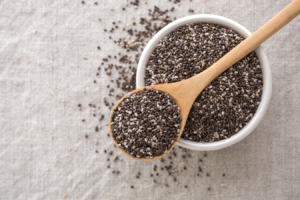Is a diet that involves eating nothing but meat advisable? Is it a good idea to eliminate sugar, dairy products, and grains?
Weight and size are high on the list of people’s top interests. In response, several diets promising specific results have emerged, promoted through social media and other communication channels. Some attract more interest than others, and consequently, more people try them. But are they healthy? Here we tell you about four of the diets that have sparked a lot of interest and the implications they entail.
1. Paleo diet
According to information from the Mayo Clinic, a paleo diet is an eating plan that is based on foods similar to those that would have been eaten in the Paleolithic period, which dates back approximately 2.5 million to 10,000 years.
This diet, which seeks to return to the diet of early humans, includes foods such as lean beef, fruits, vegetables, fish, and seeds. Processed foods that include refined sugar, dairy, starches, and grains such as wheat and oats are not part of the foods included in the lifestyle.
According to nutritionist Adriana Gonzalez, some of the benefits of this diet are achieving adequate blood sugar levels, weight control, and triglyceride reduction.
However, putting this diet into practice can also have consequences. Like Gonzalez, many professionals agree that the paleo diet, with the high level of protein consumption it proposes, can be a risk for the kidneys, by forcing them to work harder. In addition, by eliminating the consumption of foods such as carbohydrates, many people experience fatigue and irritability.
At the moment there are no studies that fully reveal the benefits or risks of this diet.

2. Ketogenic diet
Also known as keto, this diet is based on ketones, which are produced when you eat a few carbohydrates and only moderate amounts of protein. Nutritionist Estefani Paola Ajuchán points out that the goal of this diet is to produce ketosis in the body, which produces ketones, which is an alternative source of energy.
Reducing sugar in the body and losing weight are some of the benefits of the keto diet, which is why it already has thousands of followers around the world. However, among the risks of following a ketogenic diet is the possibility of having metabolic disorders.
3. Only eat meat
Its proteins, minerals, and vitamins, as well as the fact that it satisfies hunger for much longer than other foods, are some of the best-known benefits of eating meat.
Some people have taken meat consumption to another level, to the point of eating only meat. However, eating only meat can hurt the health of those who decide to do so because, although it does have properties, meat does not provide all the nutrients necessary for the human body, such as vitamins C and E. It also does not contain fiber, which is essential for digestion.
Finally, it is important to highlight that in addition to affecting cholesterol, according to the World Health Organization, there is a connection between eating a lot of red meat and cancer.
4. Circadian diet
During the day, biological rhythms vary from one moment to another and that is why the body consumes different levels of energy that it obtains from food at certain times.
Based on this idea, the basis of the circadian diet consists of distributing the types of foods in different meals.
On this diet, eggs, milk, yogurt, soy protein, and other products containing protein are ideal for breakfast. Protein is also recommended for lunch, combined with carbohydrates. Fish, eggs, red meat, and beans are some of the foods considered suitable for this meal.
Finally, for dinner, in this case, vegetables and fruits are recommended. This is because according to the diet, it is better to consume minerals, natural sugars, and fiber, and not more fat than what has been ingested during the day.
According to Rubén Bravo, from IMEO, this diet is quite limited because the foods selected for each cycle cannot be consumed in other phases, when in fact they should not be prohibited.

Finally, remember that it is important to consult with an expert when deciding on a diet. It may look promising and many people have achieved good results, but everybody is different and while restricting certain foods or focusing on eating a few can have effective results, it could also affect your health.























+ There are no comments
Add yours